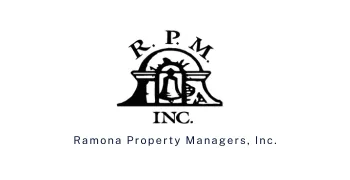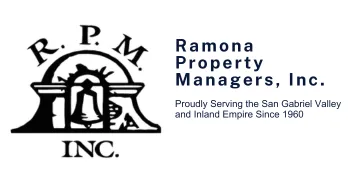Management Matters

About the Tenant Protection Act of 2019
The Tenant Protection Act of 2019 is a California state law that provides various protections for tenants. Some of the key provisions of the law include:
The law limits the amount that landlords can increase rent each year to 5% plus inflation, with a maximum increase of 10%. This provision applies to rental units that are more than 15 years old, among other requirements.
For rent increases that take effect before August 1, the percentage change is calculated using the amount published for April (or March, if no amount is published for April) of the immediately preceding calendar year and April (or March) of the year before that.
For rent increases taking effect on or after August 1, the percentage change is calculated using the amount published for April (or March, if no amount is published for April) of that calendar year and April (or March) of the immediately preceding calendar year.
Just Cause Evictions: The law requires landlords to have a valid reason, or “just cause,” for evicting a tenant. The reasons are specified in the law and are broken down between “at-fault” and “not-at-fault”. At Fault reasons include non-payment of rent, breach of lease, and criminal activity, among others.
Other “at-fault” causes include a breach of a material term of a lease that continues after a written notice of the right to cure. The written notice must provide at least three days to cure. If the tenant does not cure, then a non-curable notice of termination may be served.
Examples of “not-at-fault” causes are when an owner or relative move in only where the original lease or a new lease allows for an owner or relative to move in. The eviction must be done by an owner or the owner’s spouse, domestic partner, children, grandchildren, parents, or grandparents.
A second example of “no-fault” cause is the intent to demolish or substantially remodel a unit. “Substantially remodel” means the replacement or substantial modification of any structural, electrical, plumbing or mechanical system that requires a permit, or the abatement of hazardous material, including lead, mold or asbestos that cannot be reasonably accomplished in a safe manner with the tenant in the unit and that requires the tenant to vacate for more than thirty days. Cosmetic improvements alone, including painting, decorating, and minor repairs, do not qualify, nor does any work that can be done safely with the tenant in the unit.
This is where I highly recommend getting a professional involved. The laws are just too sticky to try this on your own. While I prefer you hire a reputable, professional property manager – like Ramona Property Managers – you should at least consult an attorney who specialized in evictions.
Notice Periods: The law extends the notice period for certain evictions. For example, if a tenant has lived in the unit for more than one year, the landlord must provide a 60-day notice for a no-fault eviction, such as an owner move-in or withdrawal from the rental market.
Tenant Protections: The law provides additional protections for tenants, such as the right to form a tenant association, the right to install electric vehicle charging stations, and the right to terminate a lease early if the tenant or their household member is a victim of domestic violence, sexual assault, or stalking.
It is important to note that the Tenant Protection Act of 2019 does not apply to all rental units, and some cities in California have additional tenant protections. Additionally, the law has various requirements and exceptions, and landlords and tenants should seek legal advice if they have questions about their rights and obligations under the law.
Exemptions: A few types of housing are exempt from just cause limitations, rent control, or both (an exempt unit is one that isn’t covered by the law).
Units constructed in the last 15 years are exempt (on a rolling basis, i.e., a unit constructed on January 1, 2008 is not covered as of January, 1 2023, but is covered on and after January 1, 2023).
Units are exempt if they are restricted to be affordable for low- or moderate-income residents.
A single family home is exempt unless it’s owned by a real estate investment trust (REIT), a corporation, or an LLC where one of the members is a corporation. The owner must inform the renter in writing that the tenancy is not subject to the rent cap and just cause limitations. We provide notification of AB 1482 status as a clause in the lease and recommend you do too.
Duplexes and other two-unit properties are exempt, unless one unit is occupied by the owner.
The exemption for single family residences does not apply if there is more than one dwelling unit on the same lot, or if there is an additional dwelling unit in the building that cannot be sold separately (such as an in-law unit).
Ramona Property Managers, Inc. offers professional property management services that can address your pain points and help you stay in compliance with eviction laws in the state of California. Our experienced team of professionals will take care of all aspects of property management, including tenant screening, rent collection, maintenance, and more.
With our services, you can rest assured that your property is in good hands and that you will receive the best possible returns on your time and money. Don’t let property management stress you out – contact us today to experience hassle-free property management services!
What We Do

Marketing
Our hi-tech and hi-touch marketing system attracts high-quality applicants to quickly find the right tenant for your property.

Tenant Verification
We have one of the most comprehensive verification systems in the industry. Applicants are screened for credit, employment, rental history, and more.

Rent Collection
Tenants pay rent directly to our office. We offer tenants 8 ways to pay their rent which maximizes our ability to collect 95% of rents in a timely manner.

Maintenance
With vendors available 24 hours a day, 7 days a week, we handle all maintenance requests and coordinate repairs so you don’t have to.

Accounting
Full accounting records, monthly statements, year – end statements and you can access your account any time through the 24/7 Online Owner Portal.

Evictions
If a tenant relationship ever takes a turn for the worse, we can assist with the eviction process & minimize its impact on your bottom line.

Inspections
Annual and on-demand inspections allow us to identify potential problems in advance, maintain good communications with tenants, & keep your home healthy.

Compliance
Regulatory Requirements. We monitor regulatory requirements that impact your property and work to keep your investment legally compliant.

Stability
Ramona Property Managers, Inc. has proudly been serving the San Gabriel Valley and Inland Empire Since 1960. Property management is what we do.
Owners, Investors, and Accidental Landlords
Areas We Serve
Altadena
Alhambra
Arcadia
Avocado Heights
Azusa
Baldwin Park
Bassett
Bradbury
Charter Oak
Chino Hills
Citrus
City of Industry
Claremont
Covina
Diamond Bar
Duarte
East Pasadena
El Monte
Glendora
Hacienda
Heights
Hillgrove
Irwindale
La Puente
La Verne
Mayflower Village
Monrovia
Monterey
Park
Montclair
North El Monte
Ontario
Pasadena
Pomona
Rosemead
Rowland Heights
San Dimas
San Gabriel
San Marino
Sierra Madre
South El Monte
South Pasadena
South San Gabriel
South San Jose Hills
Temple City
Upland
Valinda
Vincent
Walnut
West Covina
West Puente Valley


